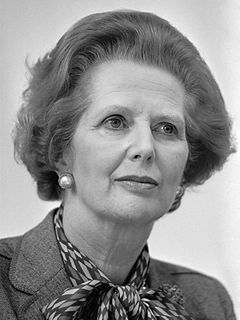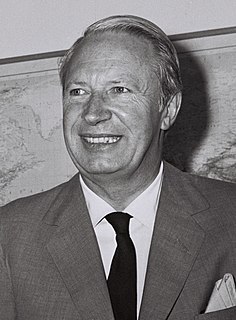Related Research Articles

The Democratic Unionist Party (DUP) is a unionist and loyalist political party in Northern Ireland. It was founded in 1971 during the Troubles by Ian Paisley, who led the party for the next 37 years. Currently led by Jeffrey Donaldson, it is the joint-largest party in the Northern Ireland Assembly, and is the fifth-largest party in the House of Commons of the United Kingdom. The party has been described as right-wing and socially conservative, being anti-abortion and opposing same-sex marriage. The DUP sees itself as defending Britishness and Ulster Protestant culture against Irish nationalism. The party is Eurosceptic and supported Brexit.

The Irish state came into being in 1919 as the 32 county Irish Republic. In 1922, having seceded from the United Kingdom of Great Britain and Ireland under the Anglo-Irish Treaty, it became the Irish Free State. It comprised 32 counties until 6 counties under the control of Unionists, opted out. The 1937 constitution renamed the 'Southern Ireland' state 'Ireland'. In 1949, only 26 counties explicitly became a republic under the terms of the Republic of Ireland Act 1948, definitively ending its tenuous membership of the British Commonwealth. In 1973 the Republic of Ireland joined the European Communities (EC) as a member state which would later become the European Union (EU).

Peter David Robinson is a retired Northern Irish politician who served as First Minister of Northern Ireland from 2008 until 2016 and Leader of the Democratic Unionist Party (DUP) from 2008 until 2015. Until his retirement in 2016, Robinson was involved in Northern Irish politics for over 40 years, being a founding member of the DUP along with Ian Paisley.

The Anglo-Irish Agreement was a 1985 treaty between the United Kingdom and the Republic of Ireland which aimed to help bring an end to the Troubles in Northern Ireland. The treaty gave the Irish government an advisory role in Northern Ireland's government while confirming that there would be no change in the constitutional position of Northern Ireland unless a majority of its people agreed to join the Republic. It also set out conditions for the establishment of a devolved consensus government in the region.
Seamus Anthony Close OBE was a Northern Irish politician, member of the Northern Ireland Assembly for Lagan Valley and a deputy leader of the Alliance Party.

Alasdair McDonnell is an Irish politician who is a member of the Social Democratic and Labour Party (SDLP), and was its leader from 2011 to 2015. He was the Member of Parliament for Belfast South from 2005 to 2017 and also a Member of the Legislative Assembly of Northern Ireland for Belfast South from 1998 to 2015.
Thomas Reilly Donahue, who served as Secretary-Treasurer of the American Federation of Labor and Congress of Industrial Organizations from 1979 to 1995, President in 1995, and President Emeritus since 1996, is one of the most influential leaders of the post-World War II American trade union movement.

Edward Heath of the Conservative Party formed the Heath ministry and was appointed Prime Minister of the United Kingdom by Queen Elizabeth II on 19 June 1970, following the 18 June general election. Heath's ministry ended after the February 1974 general election, which produced a hung parliament, leading to the formation of a minority government by Harold Wilson of the Labour Party.

The Northern Ireland Public Service Alliance (NIPSA) is a trade union in Northern Ireland affiliated to the Irish Congress of Trade Unions. It is the largest trade union in Northern Ireland, with around 46,000 members, and is organised into two groups, the Civil Service Group, for the staff of public bodies employed on civil service terms and conditions, and the Public Officers Group, for employees of education and library boards, health and social services boards, the Northern Ireland Housing Executive, district councils, other public bodies and voluntary organisations.

Ireland–United Kingdom relations, also referred to as Irish–British relations or Anglo-Irish relations, are the relations between the states of Ireland and the United Kingdom. The three devolved administrations of the United Kingdom, in Scotland, Wales and Northern Ireland, and the three dependencies of the British Crown, the Isle of Man, Jersey and Guernsey, also participate in multilateral bodies created between the two states.

The Northern Ireland Civil Service is the permanent bureaucracy of employees that supports the Northern Ireland Executive, the devolved government of Northern Ireland.

Daniel Giles Sullivan was a New Zealand Member of Parliament, Cabinet Minister and Mayor of Christchurch.
William Hull was a loyalist activist in Northern Ireland. Hull was a leading figure in political, paramilitary and trade union circles during the early years of the Troubles. He is most remembered for being the leader of the Loyalist Association of Workers, a loyalist trade union-styled movement that briefly enjoyed a mass membership before fading.

Matthew Merrigan was an Irish socialist and trade unionist from Dublin, known for his catchphrase "Profits are wages that have not been distributed yet."
The High Sheriff of Belfast is a title and position which was created in 1900 under the Local Government (Ireland) Act 1898, with Sir James Henderson the first holder. Like other high sheriff positions, it is largely a ceremonial post today. The current high sheriff is Councillor Michael Andrew Long of the Alliance Party, who took office in January 2021.
The 1993 Queen's Birthday honours were appointments by some of the 16 Commonwealth realms to various orders and honours to recognise and reward good works by citizens of those countries. The Birthday Honours are awarded as part of the Queen's birthday celebrations and were announced on 11 June 1993 for the United Kingdom, the Bahamas, Solomon Islands, Saint Lucia, Grenada, Papua New Guinea, and New Zealand and the Cook Islands. The list for Australia was announced separately on 14 June.

The Irish Congress of Trade Unions, formed in 1959 by the merger of the Irish Trades Union Congress and the Congress of Irish Unions, is a national trade union centre, the umbrella organisation to which trade unions in both the Republic of Ireland and Northern Ireland affiliate.
Belfast Trades Council, also known as Belfast & District Trades Union Council, brings together trade unionists in and around Belfast in Northern Ireland.
Brian Campfield is a trade unionist from Northern Ireland.
The 1924 Prime Minister's Resignation Honours were awards announced on 8 February 1924 to mark the exit of Prime Minister Stanley Baldwin, who resigned his first term as Prime Minister in late January.
References
- 1 2 3 Eugene McEldowney, "The Saturday Profile: Jim McCusker", Irish Times , 13 December 1980
- ↑ "New president, deputy elected", Irish Times , 6 July 1985
- ↑ Brian Donaghy, "Unions neutral on Anglo-Irish deal, says ICTU president", Irish Times , 2 July 1986
- ↑ University of Ulster, "Jim McCusker"